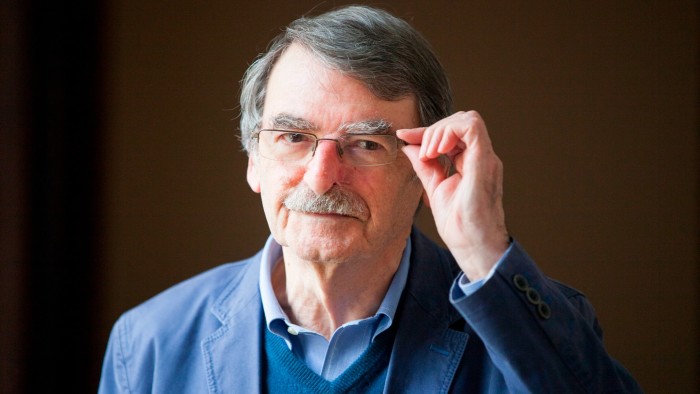Summarize this content to 2000 words in 6 paragraphs in Arabic Unlock the Editor’s Digest for freeRoula Khalaf, Editor of the FT, selects her favourite stories in this weekly newsletter.David Lodge once confessed to having a fondness for binary structures. Imagine, he wrote, “two professors passing each other over the North Pole on their way to exchange jobs . . . or a parallel between the antics of globetrotting academics and the adventures of the knights of chivalric romance”.These were not idle thought experiments, but rather thumbnail sketches of two of his best-known books, Changing Places (1975) and Small World (1984), works which established his reputation as one of the leading practitioners of the “campus novel”. Small World was shortlisted for the Booker Prize.Lodge, who has died at the age of 89, said that several of his novels correspond to a “particular phase or aspect” of his life. Together with 1988’s Nice Work, which completed his campus trilogy and was also shortlisted for the Booker, Changing Places and Small World drew on his career as an academic. He taught English literature at the University of Birmingham, recast as the fictional University of Rummidge in the books, from 1960 until 1987, when he took early retirement to work full-time as a writer. The University of California at Berkeley, where he spent a year as a visiting professor in the late Sixties, appears in the guise of the State University of Euphoria.David John Lodge was born in London in 1935. When he was 18 months old, his family moved from East Dulwich to the neighbouring south-east London suburb of Brockley, a “declining, unfashionable” redoubt of the “lower-middle and working class[es]”. His father William was a jobbing musician who played the violin in silent film cinemas and later the tenor saxophone in London dance bands. His mother, Rosalie, “half Irish, half Belgian” and a Roman Catholic, trained as a shorthand typist and did secretarial work.It was, Lodge would write, “quite a good time to be born”. He passed the eleven-plus and made it to grammar school before attending University College London, where he read English. “I was promoted by education into the professional middle class,” he said.He met Mary Jacob in his first week at UCL in 1952. They married in 1959 and had three children, the youngest of whom was born with Down’s syndrome.The following year, 1960, was an auspicious one for Lodge: he was hired as a lecturer at Birmingham and published his first novel, The Picturegoers, which evokes the south-east London of his childhood and adolescence. This book, and the one that followed, Ginger, You’re Barmy, are, in Lodge’s own description, “essentially serious works of scrupulous realism”.But his third novel, The British Museum is Falling Down, is a comedy. It deals with the sexual tribulations of a young Catholic couple and was born out of “personal exasperation over the whole birth control issue”. As observant Catholics, Lodge and his wife eschewed artificial contraception and adopted instead the so-called rhythm or safe method, which was “neither rhythmical nor safe, and, therefore, a cause of considerable stress”. (He returned to Catholic themes in How Far Can You Go?, published in 1980.)Lodge credited his great friend the novelist and critic Malcolm Bradbury with encouraging the comic turn in his fiction. In the early Sixties, the pair co-wrote a Beyond the Fringe-style satirical review for the Birmingham Rep, one of the performers in which was a young Julie Christie.Comedy also helped to reconcile Lodge’s “critical admiration” for modernist authors such as James Joyce and Virginia Woolf with his own writing, which was shaped by the neorealism of the late Fifties. The British Museum is Falling Down contains elements of literary parody and pastiche and also draws on Lodge’s scholarly exploration of how “fictional worlds are constructed in language”.In 2002, Lodge began work on a project quite unlike anything he had attempted previously. In Author, Author, which was eventually published in 2004, he sought to carve a “novel-shaped story” from the disparate facts of the life of Henry James. Composing a historical novel was a change of direction for Lodge, and he said he’d “never enjoyed writing a book more”. The problem was that, unbeknown to Lodge, the Irish writer Colm Tóibín was also at work on a novel based on the life of James, which would appear in the same year. “I certainly feel”, he confessed, “that Author, Author has been an unlucky book.”This reaction — mildly rueful rather than enraged — was entirely in character. “Compromise”, Lodge told an interviewer, “[is] part of my nature and temperament”.
رائح الآن
rewrite this title in Arabic David Lodge, novelist and academic, 1935-2025
مال واعمال
مواضيع رائجة
النشرة البريدية
اشترك للحصول على اخر الأخبار لحظة بلحظة الى بريدك الإلكتروني.
© 2026 جلوب تايم لاين. جميع الحقوق محفوظة.









